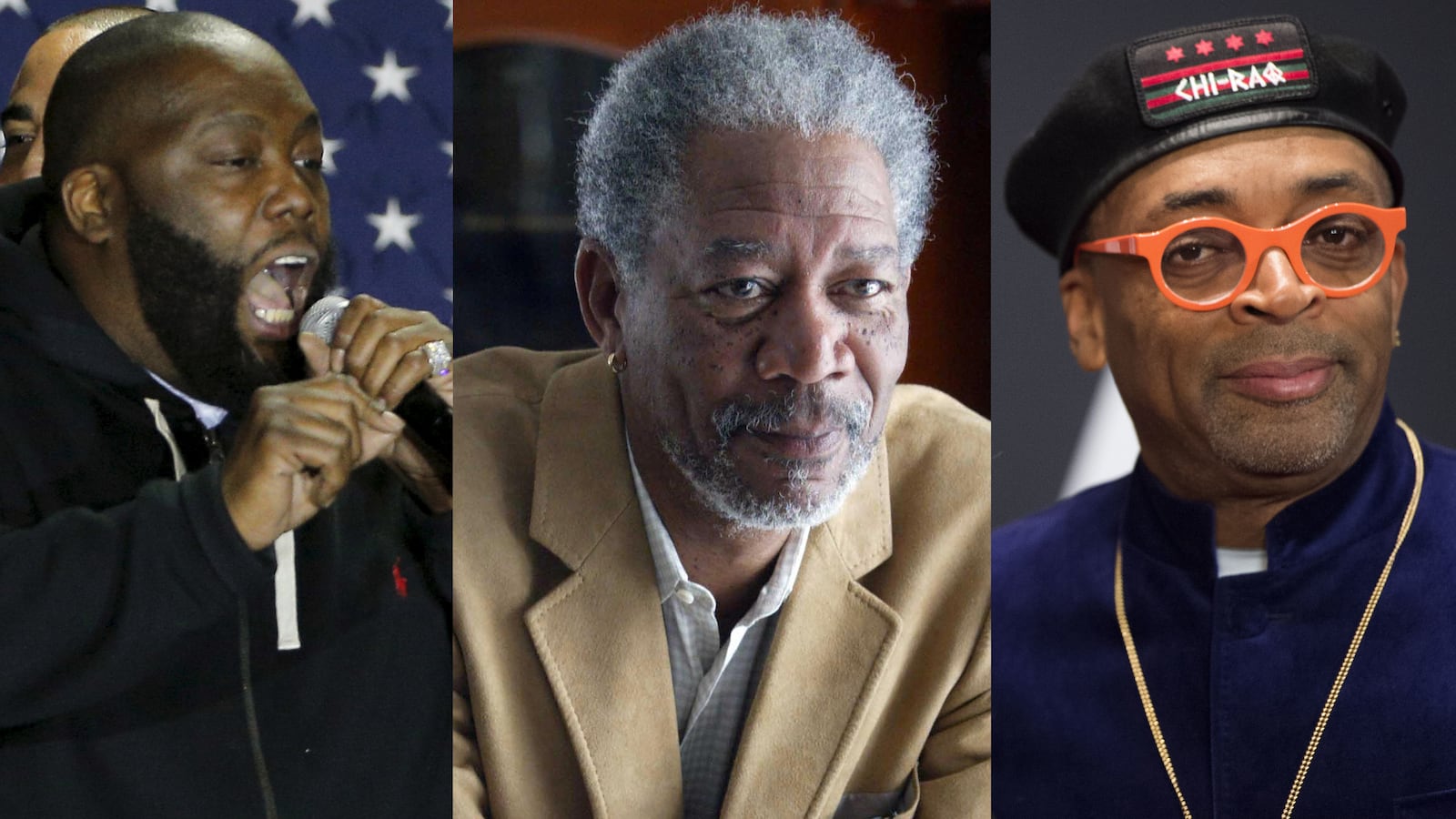Bernie Sanders has earned the endorsements of the Killer Mike, Ta-Nehisi Coates, Cornel West, and Eric Garner’s daughter to try to win over black voters. Likewise, Hillary Clinton tapped into her existing network of black politicians and leaders like congressmen Jim Clyburn of South Carolina and John Lewis of Georgia, who have returned to the Clinton fold after defecting to support Obama in 2008. Intellectuals such as Michael Eric Dyson, who had a very public falling out with West, have not only supported Clinton, but have written long thought-pieces about how her presidency can benefit the black community.
But to the dismay of both candidates, especially Sanders, black voter turnout dropped dramatically in the South Carolina primary compared to 2008—the last time the Democrats had a contested primary in the state. Their efforts haven’t resonated strongly with black voters, especially young black voters, despite the numerous endorsements and testimonials.
So now we must ask: Who or what can effectively engage the black community to get them to show up to the polls at Obama-era levels?
Let’s start with arguably the biggest female African-American pop star in the world. Beyoncé attended a Clinton fundraiser in 2015, but so far that is the extent of her involvement. No one should be expecting Beyoncé to be Hillary’s Killer Mike.
Oprah would also be a coveted get for either politician, but my guess is that she will stay away from the political fray until late in the game. Morgan Freeman has come out in support of Clinton, and even if few people have a solid grasp of his political views, the addition of his voice to some Clinton ads could definitely sway some voters, as the film industry’s “voice of God” compels them to the polls.
More seriously, the expectations for black celebrity endorsements in 2016 is following a false paradigm. The endorsements that Obama received in 2008 and 2012 may be unavailable to Clinton and Sanders in 2016. Oprah, despite being the most powerful woman in entertainment, had previously stayed away from the political fray. But the exceptional nature of Obama’s candidacy compelled her to endorse him, acting in a way that could have damaged her brand, which is worth over a billion dollars.
The African-American community has always had celebrities that have engaged in the political activism such as Sydney Poitier, Harry Belefonte, Nina Simone, and countless others. But a professional price has normally been paid because of this activism. Black entertainers were seen in a different light by white audiences following their activism, and more often than not, this proved detrimental to their professional careers.
There has historically been a greater complexity to earning the political support of a black celebrity, but today’s era has made African-American activism in entertainment more mainstream than ever before.
The uniqueness of Obama’s candidacy and presidency has altered the trajectory of political activism among black celebrities and entertainers. Beyoncé’s “Formation” video and Super Bowl performance paid homage to the Black Panthers. Rapper Kendrick Lamar has been to the White House, and President Obama said that Lamar’s song “How Much a Dollar Cost” is his favorite song of the year. John Legend and Common won an Oscar for “Glory” from the movie Selma.
A flurry of mainstream African-American activism or an increasing of the awareness of black lives and black struggles in America could go on for quite a while. This activism is undeniably and unabashedly black, and this is actually the dilemma that the Democrats are facing, because they no longer have a black candidate who can unite and energize this electorate.
Clinton already has an established relationship with older members of the black community. They remember the Clintons being the first political family to seek out and engage the black vote since the civil rights era. They remember Bill on Arsenio Hall. They know that the Clintons made mistakes regarding their criminal justice policies of the 1990s, but they also believe that Hillary knows that times have changed and the big concern now isn’t high crime but mass incarceration.
Bernie Sanders wanted to reach out to the young, but his message did not catch on. But South Carolina was not a positive result for the Democratic Party despite Clinton’s resounding victory. Only 367,000 people voted in the 2016 South Carolina Primary, and 61 percent (223,870) were black. Clinton won 87 percent of the vote in a resounding victory. Yet in 2008, 532,000 people participated, and 55 percent (292,600) were black. Obama won 78 percent (228,228) of the vote. So more black people voted for Obama in South Carolina in 2008 than participated in the entire 2016 primary.
Basically, the Democrats have a gigantic Obama-size void that they need to fill with the black community, and especially for young black voters. Obama has actually been the only president that many young black voters have really gotten to know, so the inability to vote for him again and having to watch this black family leave the White House will be a difficult reality to confront for many black Americans. Not being able to vote for Obama could easily make either candidate and the eventual nominee seem insignificant for a young black voter.
Obama needs to play an integral role in the 2016 election, and not only does the nominee need to have his support, but she or he (and yes, it’s probably she) needs to represent a continuation of Obama’s legacy to earn the enthusiastic support of black voters. Also, the GOP’s stated commitment to prevent Obama from filling the vacant seat on the Supreme Court should energize black voters young and old alike. The Supreme Court nominee will represent a continuation of Obama’s legacy that could be felt for generations to come. If the Democrat nominee promises to nominate Obama’s nominee when they become president, black voters will flock to support them.
Clinton and Sanders have fought hard to win the support of black celebrities, politicians, activists, and intellectuals. But there’s only one person who encompasses all of those roles. And to earn the support of the black community, the Democrat candidate needs to show how s/he is the best continuation of Obama’s legacy of African-American progress and increased political engagement.
Allowing the black community one last time to vote for Obama will be integral to the Democrats’ success in November.






